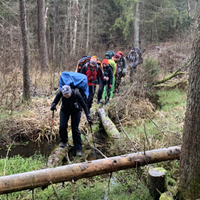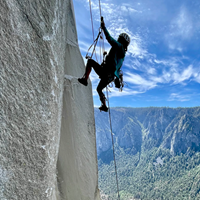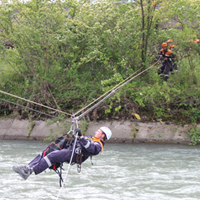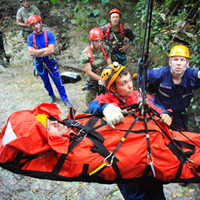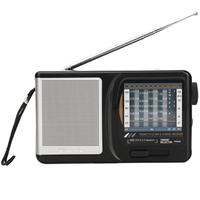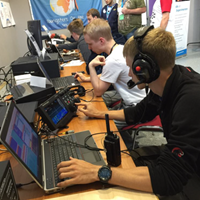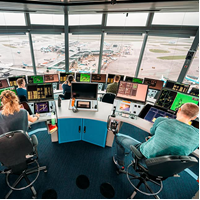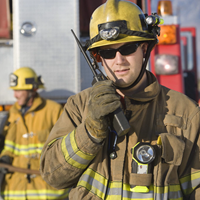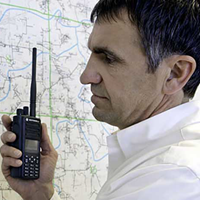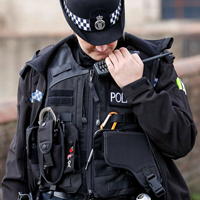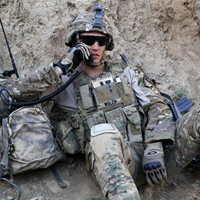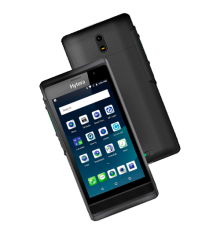What radio stations are for
Despite the gigantic growth in mobile coverage and the periodic reduction in tariffs for its use, portable radios have not lost their importance as a convenient and practical means of communication. Especially when used as part of outdoor activities:
Mobile communications require time to dial, wait for a call and respond directly to the subscriber. Radio stations provide an instant communication session, which is especially important when coordinating actions, for example, during rescue operations or sports competitions, where every second is precious. The speed of transmission of short but important messages is also important when the group is moving in cars, motorcycles, snowmobiles or bicycles. In such situations, the walkie-talkie allows you not to be distracted by the display, keep your hands on the steering wheel to receive a message and answer the call at a convenient moment.
Despite the widespread use of cellular communications, there are still many places where there is simply no coverage. In many mountainous regions, the lack of cell repeater towers often leads to phones losing signal in certain areas - even in populated areas and popular resort areas. Often in such places there are excellent places for hunting, fishing or picking mushrooms, and there are many interesting tourist routes outside the cellular coverage areas. In such cases, only radio stations allow you to organize high-quality communication between group members.
It is not possible to use a mobile phone in caves, grottoes and underground galleries. The organization of radio communication in this case will also be fraught with difficulties, but at least it allows cavers to exchange messages within the range of the signal.
Unlike a telephone, radio communication allows the whole group to communicate, and not just in an individual format.
Cellular communications have certainly fallen in price, but the active use of the phone to communicate with colleagues in roaming conditions when traveling abroad is expensive. Radio stations allow you to exchange messages for free.
Unlike a telephone, radios do not require a call to be answered directly. The person you are contacting can simply listen to your message without being distracted from the current business (picking mushrooms, reconnaissance of the ford, arranging insurance, downhill skiing, etc.) and respond to it later.
Scope of radio stations
The scope of radio stations is huge. Here it is necessary to divide it a little into unlicensed and licensed.
License-free scope
|
|
The radio is a great way to coordinate activities within a hiking group or climbing team. Even simple models with a relatively short signal range make it very easy to find the best place to park or ford. Scouts can constantly be in touch with each other, clarifying which of the best places for a camp or crossing is better. In addition, they do not need to return to the rest of the group, wasting precious time on this - just get in touch, and the team will simply move to the parking lot or ford. Similarly, radio stations can be used simply for route reconnaissance. |
|
In cycling, the radios allow the leader of the group to quickly talk to the last one and assess how much the "tail" of the lagging behind participants is stretched in order to decide whether to continue moving or make a halt to wait for the rest. |
|
|
|
In rock climbing and mountaineering, radio stations are actively used, for example, to communicate with a leader who has disappeared behind a bend, as well as to contact the base camp. |
|
Radio stations help with the organization of a hanging crossing or rescue work. With the help of them, participants can effectively coordinate their actions over a long distance, especially in background noise conditions - they do not have to shout over the sound of water and wind. |
|
|
|
Radio stations are convenient in tourist life. For example, a group member who is absent for picking mushrooms / berries or photographing landscapes can stay in touch with the camp and be in time for dinner. Also, radio stations will be of great help to the photographer who wants to take a beautiful group shot against the backdrop of a picturesque landscape. Communicating on the radio station, he can quickly correct the position of the group in the picture. |
|
Radios are an effective means of emergency communication. If one of the participants is injured, the rest will know about it almost instantly, which will simplify the final decisions and save a lot of time. Also, with the help of a radio station, you can get in touch with rescuers, of course, if you first know the frequency on which they operate in the area. |
|
|
|
Finally, many portable radios are capable of operating in the FM band, ie. like a regular radio. It helps not only to diversify the field life by listening to music, but also sometimes to find out useful news and weather forecast. |
|
The use of radio stations is not limited exclusively to camping life. Ordinary skiers and snowboarders who ski within the resort often use portable radios to communicate with their comrades. They are more ergonomic to use than telephones - radios provide instant calling and comfortable operation when wearing gloves or mittens. Plus, they are much more durable in the cold than most modern smartphones. For the same reasons, the radio station is a must-have item in the list of equipment for any outdoor enthusiast. |
|
Licensed Scope
The license scope is even more extensive. It assumes the availability of permits, licenses, etc. The scope of the licensed application includes:
|
|
Radio amateurs, amateur radio clubs and groups |
|
State institutions |
|
|
|
State emergency and rescue services, ambulance services, etc. |
|
Commercial organizations providing radio communication services or organizations using the radio frequency resource on a commercial basis: security agencies, taxi services, etc. |
|
|
|
State law enforcement agencies, representatives of law enforcement agencies, intelligence organizations, etc. |
|
Military units and special operations forces of the Department of Defense |
|
1 reviews / Write a review




